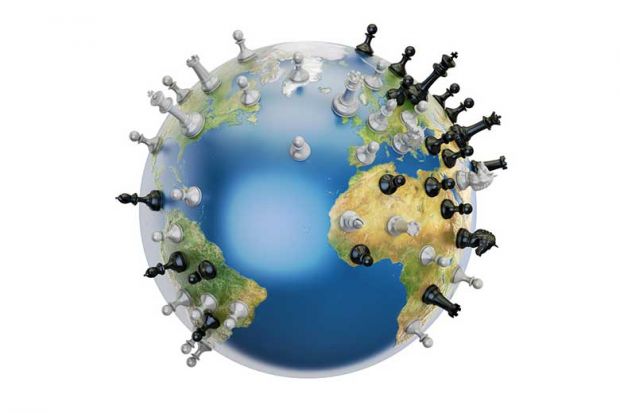A major feature of the past half-millennium has been the expansion of European dominance across the world. What accounts for Europe’s global conquest? One of the most enduring explanations rests on Europe’s powers of war. This is known as the military revolution thesis.
The short version is that, between 1450 and 1750, the introduction of guns and emergence of new kinds of fortresses required rulers to field ever larger, better-trained armies, which in turn demanded ever increasing bureaucracies to manage the military forces and the taxation needed to fund them. This early arms race forcibly created the modern political state, and gave Europeans technological and institutional advantages over the rest of the world. That is why this period coincides with the spread of overseas European empires.
Although this explanation seems reasonable on the surface, it is wrong. J. C. Sharman breaks it down piece by piece, without assuming prior knowledge.
Empires of the Weak demonstrates the problems with the theoretical assumptions of the military revolution thesis, but even its premise is flawed. The period 1450-1750 did see the spread of overseas European empires, but none was based on conquest by the type of large, state-backed, well-trained, professionalised armies that were used in Europe. Many colonies began as private ventures backed by joint-stock companies and were not state-funded endeavours at all.
This is not to say that there was no violence: Europeans were happy to use might against weaker foes; they just didn’t encounter as many as one might think. In Asia and Africa, European trading rights largely depended on the goodwill of powerful local polities such as the Mughal and Chinese empires. In the Americas, several hundred Spanish soldiers under Hernán Cortés succeeded in overthrowing the Aztec Empire, but only with the help of thousands of allied forces and imported diseases that wiped out much of the local population. In North Africa and Eastern Europe – the only places where European states did field large, professionalised armies against a non-European enemy (the Ottoman Empire) – they suffered more defeats than victories.
Why, if it’s so demonstrably false, is this story about guns and empire so tenacious? The answer is partly about periodisation: the story is true for the period between 1800 and 1950, when the Industrial Revolution really did give Europeans a technological advantage. But it is also partly about when we imagine the story to end. If we put that in 1939, it looks remarkably different from the story that continues to 2019, when we have to take into account how rapidly European empires disintegrated in the post-war world.
Sharman’s real concern is about how we understand the emergence of the first truly global international system, where the dominance of Europe and its settler colony descendants looks increasingly tenuous. If we recognise that Europeans were only able to dictate terms at the end of a gun for a relatively brief period, then the current shift towards China, India and similar nations feels more like a return to the norm. European dominance may have been a phase, not the endgame, and people who have become used to commanding may need to remember how to negotiate.
Sarah Kinkel is an independent scholar. She is the author of Disciplining the Empire: Politics, Governance, and the Rise of the British Navy.
Empires of the Weak: The Real Story of European Expansion and the Creation of the New World Order
By J. C. Sharman
Princeton University Press
216pp, £22.00
ISBN 9780691182797
19 February 2019
POSTSCRIPT:
Print headline: The myth of the conquering army
Register to continue
Why register?
- Registration is free and only takes a moment
- Once registered, you can read 3 articles a month
- Sign up for our newsletter
Subscribe
Or subscribe for unlimited access to:
- Unlimited access to news, views, insights & reviews
- Digital editions
- Digital access to THE’s university and college rankings analysis
Already registered or a current subscriber? Login








